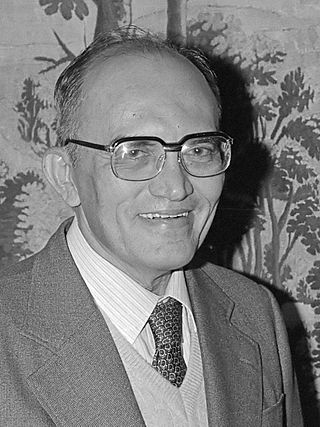Top Qs
Timeline
Chat
Perspective
Siddhi Savetsila
Thai air force officer and politician (1919–2015) From Wikipedia, the free encyclopedia
Remove ads
Siddhi Savetsila (Thai: สิทธิ เศวตศิลา, RTGS: Sit Sawetsila, Thai pronunciation: [sìt sàʔwèːtsìʔlaː], 7 January 1919 – 5 December 2015) was a Thai air force officer and politician. After finishing his military career with the rank of air chief marshal, he served as the foreign minister of Thailand from 1980 to 1990. In 1991, he became a member of the Privy Council of King Bhumibol Adulyadej. He was the president of the united nations security council in 1985 with Mom Luang Birabhongse Kasemsri.[2]
Remove ads
Life and education
Summarize
Perspective

Siddhi Savetsila was born in Bangkok. He is a member of the Thai aristocracy. His father was a high-ranking official in the royal government. His paternal grandfather was Henry Alabaster who was the British consul in Siam during the reign of King Rama IV (Mongkut) and then served as an advisor to King Rama V (Chulalongkorn).[3] His mother was an offspring of the influential Bunnag family. He is a direct descendant of Somdet Chao Phraya Borom Maha Prayurawongse.[4]
Siddhi studied metallurgic engineering at the Massachusetts Institute of Technology (MIT), graduating with an S.B. degree in 1943. During the Second World War, he joined the Free Thai Movement (Seri Thai) which resisted against the de facto occupation of Thailand by Japanese forces. He collected data for the US foreign-intelligence agency OSS (predecessor of the CIA) and was temporarily detained by the Japanese.[5] Two of Siddhis sisters married US intelligence operatives, one was the wife of former OSS agent Willis Bird and one of CIA officer William Lair.[6] After the end of the war, he returned to the MIT and received his S.M. degree in 1947.
Siddhi holds honorary doctorate degrees from the University of the Philippines, the National University of Singapore and five universities in Thailand.
Remove ads
Air Force career
He then served in the Royal Thai Air Force and rose up to the rank of air chief marshal (phon akat ek).
Security career
From 1975 to 1980 he served as Secretary-General of the National Security Council. In this position he assisted Prime Minister Kriangsak Chomanan at the time of the Vietnamese invasion of Cambodia during 1978 to 1979.
Political career

In 1980, Kriangsak appointed him minister of foreign affairs. He kept this position when Prem Tinsulanonda took over the premiership a few months later. As Thailand's representative in the United Nations (UN) and ASEAN, Siddhi advocated a tough line towards Vietnam which was occupying Cambodia after 1979. In 1983, Siddhi was elected member of parliament and in 1985 he took over the leadership of the Social Action Party (SAP) following the retirement of Kukrit Pramoj. The party did well in the 1986 election and Siddhi additionally became deputy prime minister for a short time.
In August 1990, the new Prime Minister Chatichai Choonhavan dismissed Siddhi as he sought a more pragmatic relationship with the communist-ruled countries of Southeast Asia. Siddhi's SAP was in great difficulties during the late 1980s and, in September 1990, Siddhi gave up his leadership. One month later, he completely retired from the parliament and the party, stating that he was tired of politics.[7] In 1991 King Bhumibol appointed him to his privy council.[8]
Remove ads
Died
He died on 5 December 2015 at the age of 96.[9]
Honour
He was decorated with the Order of Chula Chom Klao (first class), the Order of the White Elephant (special class) and the Order of the Crown of Thailand (special class), as well as foreign decorations from 14 countries.[8]
On 8 May 2000, he was among the five Free Thai veterans who were awarded the Agency Seal Medallion by CIA director George Tenet.
Foreign Honours
 Knight Grand Cross of the Order of Chula Chom Klao
Knight Grand Cross of the Order of Chula Chom Klao Knight Grand Cross of the Order of the White Elephant
Knight Grand Cross of the Order of the White Elephant Knight Grand Cross of the Order of the Crown of Thailand
Knight Grand Cross of the Order of the Crown of Thailand Freemen Safeguarding Medal, First Class
Freemen Safeguarding Medal, First Class Chakra Mala Medal
Chakra Mala Medal King Rama IX Royal Cypher Medal, 3rd class
King Rama IX Royal Cypher Medal, 3rd class
Foreign honour
 United States :
United States :
 South Korea :
South Korea :
 Order of Diplomatic Service Merit, Gwanghwa Medal
Order of Diplomatic Service Merit, Gwanghwa Medal
 Chile :
Chile :
 Grand Cross of the Order of Merit
Grand Cross of the Order of Merit
 Argentina :
Argentina :
 Grand Cross of the Order of the Liberator San Martin
Grand Cross of the Order of the Liberator San Martin
 Austria :
Austria :
 Grand Decoration of Honour in Gold with Sash of the Decoration of Honour for Services to the Republic of Austria
Grand Decoration of Honour in Gold with Sash of the Decoration of Honour for Services to the Republic of Austria
 Malaysia :
Malaysia :
 Honorary Commander of the Order of the Defender of the Realm (P.M.N.) (1983)[10]
Honorary Commander of the Order of the Defender of the Realm (P.M.N.) (1983)[10]
 Portugal:
Portugal:
 Grand Cross of the Order of Prince Henry (G.C.I.H.)
Grand Cross of the Order of Prince Henry (G.C.I.H.)
Remove ads
References
Wikiwand - on
Seamless Wikipedia browsing. On steroids.
Remove ads

